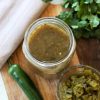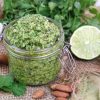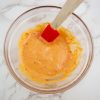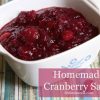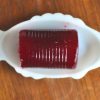Carolina Vinegar Barbecue Sauce Recipe
A Deep Dive into Carolina Vinegar Barbecue Sauce: Carolina Vinegar Barbecue Sauce Recipe
Carolina vinegar barbecue sauce recipe – Carolina vinegar-based barbecue sauce, a cornerstone of Southern culinary heritage, boasts a unique and tangy flavor profile that distinguishes it from other regional styles. Its history is rich, its ingredients simple yet impactful, and its preparation surprisingly straightforward. This exploration delves into the origins, variations, and culinary applications of this beloved condiment.
The History of Carolina Vinegar Barbecue Sauce
Carolina vinegar barbecue sauce’s origins trace back to the early settlers of the Carolinas, who adapted their cooking methods to the available ingredients. The use of vinegar, readily available and a natural preservative, became a defining characteristic. Unlike the tomato-based sauces prevalent in other regions, the leaner meats common in the Carolinas, often pork shoulder or chopped pork, were better suited to a vinegar-based sauce that cut through the richness.
The sauce’s evolution was influenced by the diverse cultural backgrounds of the region’s inhabitants, incorporating elements of European and African culinary traditions. This contrasts sharply with the tomato-heavy sauces of Kansas City or the mustard-based sauces of South Carolina, showcasing a distinct regional identity.
- Early 18th Century: Vinegar becomes a key ingredient in the preparation of meats in the Carolinas.
- Late 19th Century: Regional variations begin to emerge based on readily available ingredients and local preferences.
- Mid 20th Century: Commercial production of vinegar-based barbecue sauces starts to gain popularity.
- Late 20th Century – Present: Carolina vinegar barbecue sauce gains national recognition and appreciation for its unique flavor profile.
Key Ingredients and Their Roles
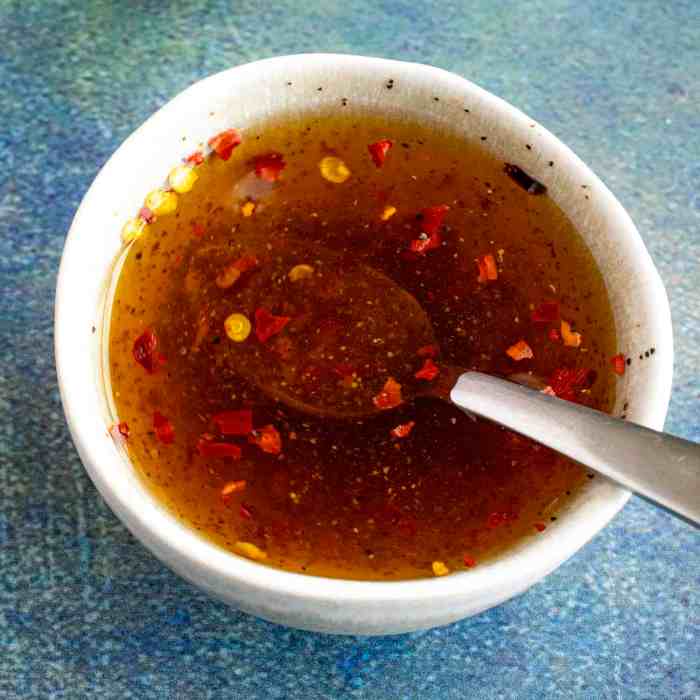
Source: chilipeppermadness.com
The simplicity of Carolina vinegar barbecue sauce belies its complexity of flavor. Vinegar forms the foundation, providing the signature tang and acidity. The pepper blend adds a welcome kick, while sweeteners balance the acidity, creating a harmonious blend.
Vinegar’s role is crucial; it not only provides acidity but also acts as a tenderizer for the meat. Commonly used vinegars include apple cider vinegar, white vinegar, and sometimes a combination of both. Apple cider vinegar contributes a subtle sweetness and fruity note, while white vinegar offers a sharper, more acidic taste.
The pepper blend, typically including black pepper and red pepper flakes, offers varying levels of heat, depending on the recipe and regional preferences. Sweeteners, such as brown sugar or molasses, are essential for balancing the acidity of the vinegar and adding depth to the flavor. They prevent the sauce from being overwhelmingly sour.
| Vinegar Type | Acidity Level | Flavor Profile | Best Use |
|---|---|---|---|
| Apple Cider Vinegar | Medium | Sweet, fruity, slightly tart | Adds a mellow tang |
| White Vinegar | High | Sharp, acidic, clean | Provides a strong vinegar bite |
| Combination (Apple Cider & White) | Medium-High | Balanced, complex, both tart and sweet notes | Offers a versatile flavor profile |
| Rice Vinegar | Medium-Low | Subtle, slightly sweet, less acidic | Provides a milder vinegar flavor |
Variations in Recipes and Regional Differences, Carolina vinegar barbecue sauce recipe
Carolina vinegar barbecue sauce recipes vary across the state, reflecting local tastes and readily available ingredients. Eastern North Carolina tends towards a thinner, more vinegar-forward sauce, while the western part may incorporate a touch more sweetness or spice.
- Eastern North Carolina Style: Emphasizes a sharp vinegar flavor with minimal sweetness, often using primarily white vinegar.
- Western North Carolina Style: Often includes a touch more brown sugar or molasses for a slightly sweeter profile, sometimes incorporating tomato paste in smaller quantities.
- Coastal Carolina Style: May feature the addition of seafood elements, such as shrimp broth or crab seasoning.
Preparation Methods and Techniques
Making Carolina vinegar barbecue sauce is relatively simple. The key is simmering the ingredients to allow the flavors to meld and the sauce to thicken slightly. Adjusting the amount of pepper allows for customization of spiciness.
A basic recipe typically involves combining vinegar, pepper, and sweetener in a saucepan, then simmering until the desired consistency is achieved. Simmering time is crucial, impacting both the flavor and texture. Longer simmering times result in a more concentrated and slightly thicker sauce.
Serving Suggestions and Pairings
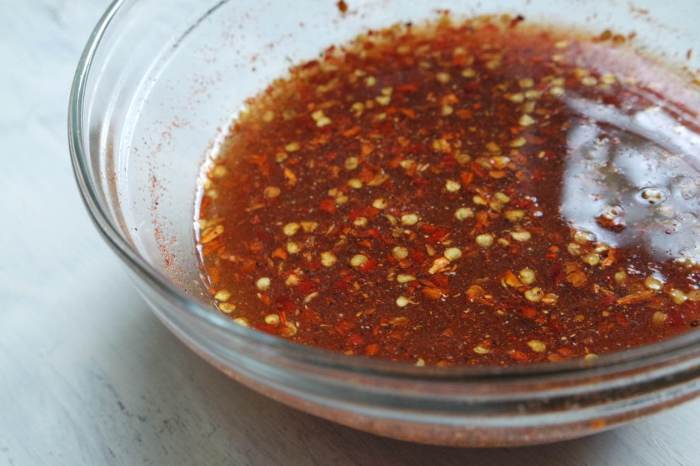
Source: jesspryles.com
Carolina vinegar barbecue sauce is best paired with leaner meats, allowing the sauce’s sharp tang to cut through the richness. Pulled pork, chopped pork, chicken, and even some types of fish, all pair well.
| Meat | Side Dish | Flavor Combination Description | Image Description |
|---|---|---|---|
| Pulled Pork | Coleslaw | The tangy sauce complements the creamy coleslaw, balancing richness and acidity. | A platter of pulled pork generously coated in dark brown vinegar-based barbecue sauce, alongside a vibrant mound of finely shredded coleslaw with a light vinaigrette. |
| Chopped Chicken | Hushpuppies | The slightly sweet hushpuppies absorb the sauce beautifully, creating a delicious contrast in texture and flavor. | A bowl of tender, chopped chicken drenched in a glistening dark brown sauce, surrounded by golden-brown, fluffy hushpuppies. |
| Grilled Fish (e.g., Trout) | Potato Salad | The sauce adds a surprising dimension to the grilled fish, while the potato salad provides a creamy counterpoint. | A plate featuring a flaky grilled trout fillet glistening with the dark sauce, accompanied by a bowl of creamy potato salad. |
Preservation and Storage
Proper storage is essential to maintain the quality and flavor of Carolina vinegar barbecue sauce. Refrigeration is recommended for optimal shelf life, extending its usability for up to a week. Freezing the sauce in airtight containers can extend its shelf life for several months. However, note that freezing may slightly alter the texture. Over time, especially at room temperature, the sauce’s flavor can become more intense and potentially less balanced.
Questions and Answers
Can I use apple cider vinegar instead of white vinegar?
Yes, apple cider vinegar will impart a sweeter, fruitier flavor. However, it may slightly alter the overall balance of the sauce.
How long does the sauce last in the refrigerator?
Properly stored in an airtight container in the refrigerator, Carolina vinegar barbecue sauce will typically last for 2-3 weeks.
Can I freeze this sauce?
Yes, freezing is a good option for longer storage. Allow the sauce to thaw completely in the refrigerator before using.
What if my sauce is too acidic?
Add a small amount of brown sugar or molasses to balance the acidity. Taste and adjust as needed.




